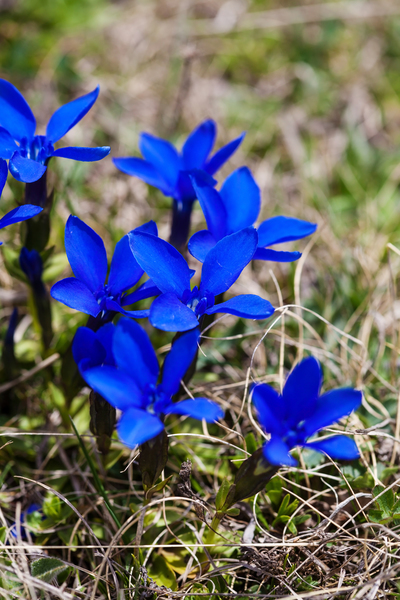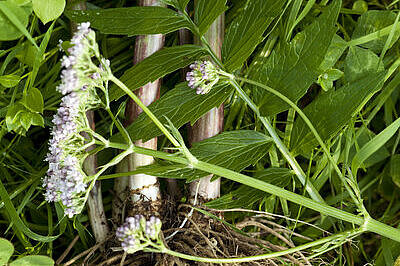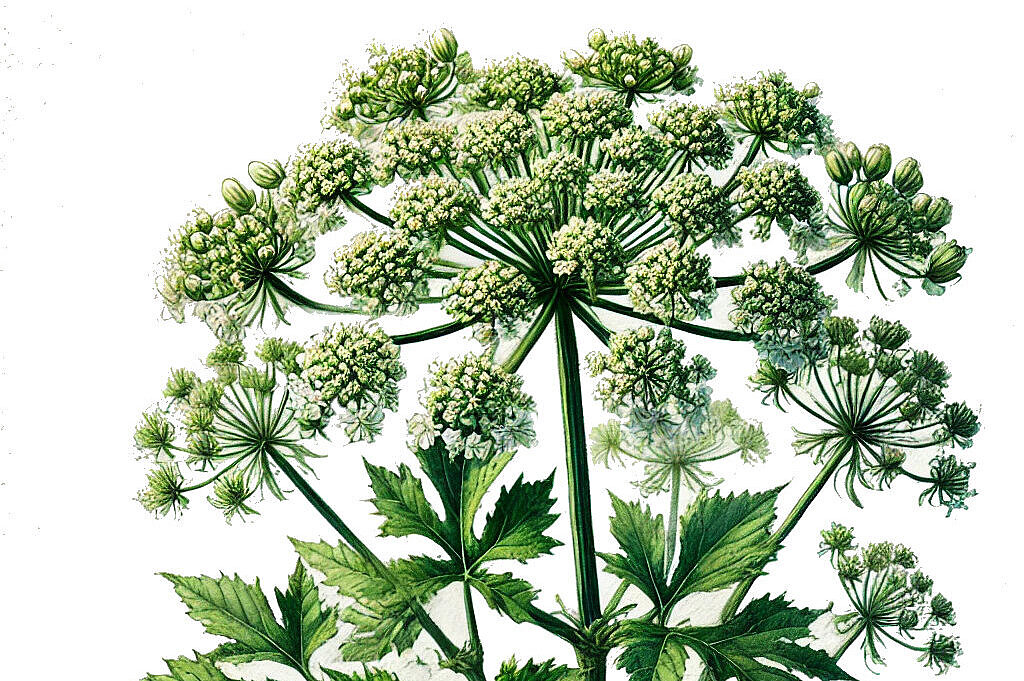Gentian root

What is gentian root and how does it work?
Gentian root is a bitter substance that exerts a strong stimulus on the taste buds. As a result, they stimulate the production of saliva, gastric juice and bile and thus promote digestion. Bitter substances also have an anti-inflammatory, antibacterial and antiviral effect. In addition to the bitter substances, gentian root also contains tannins, flavonoids and other secondary plant substances, which also have health-promoting properties.
Gentian root can help dogs with the following complaints in particular:
- Loss of appetite
- flatulence
- diarrhoea
- inflammation of the stomach lining
- Liver and gallbladder problems
- worm infestation
- skin problems
- infections
How can gentian root be used for dogs?
Gentian root is available in various dosage forms such as tea, tincture, powder or tablets. The dosage depends on the size and weight of the dog, but also on the severity of the symptoms. In general, you should always start with a low dose and slowly increase it until an improvement occurs. An overdose can lead to nausea, vomiting and diarrhea.
Possible dosage
- Tea: Pour 250 ml of boiling water over 1 teaspoon of dried gentian root and leave to infuse for 10 minutes. Add the cooled tea to the dog's food or drinking water. Depending on the size of the dog, give 50 to 200 ml 2 to 3 times a day.
- Tincture: Dissolve 1 to 2 drops per kilogram of body weight in a little water and give over the food or directly into the mouth. Administer 2 to 3 times a day.
- Powder: Stir 0.5 to 1 gram per kilogram of body weight into a little water or quark and give over the feed or directly into the mouth. Administer 2 to 3 times a day.
- Tablets: Tablets usually contain a standardized amount of bitter substances. The dosage depends on the package leaflet or the vet.
What are the advantages and disadvantages of gentian root for dogs?
Gentian root has many health benefits for dogs, especially for digestive problems. It can stimulate food intake, improve nutrient absorption, stabilize intestinal flora and ward off parasites. It can also relieve inflammation, strengthen the immune system and promote skin health.
However, gentian root also has some disadvantages that need to be considered. For one thing, it is very bitter and many dogs do not like to eat or drink it. It may therefore be necessary to use a few tricks to make it palatable to the dog. Secondly, gentian root can cause side effects such as nausea, vomiting or diarrhea in sensitive dogs. You should therefore always dose carefully and pay attention to the dog's reaction.
Gentian root is a plant with bitter substances that stimulate digestion and has anti-inflammatory, antibacterial and antiviral properties. In dogs, it can help with loss of appetite, flatulence, diarrhea, gastritis, liver and gallbladder problems, worm infestations, skin problems and infections. It is available in various forms, but the dosage should be taken carefully as an overdose can cause nausea, vomiting and diarrhea. Gentian root has many health benefits but may be unacceptable to some dogs due to its bitter taste and may cause side effects in sensitive dogs.
Properties 2
Are you looking for other ingredients with a specific property?
Just click on them to find more.
If you notice any signs of hypersensitivity or poisoning in your dog, you should see your vet immediately. We are not a substitute for a vet, but we try to be as accurate as possible. Every dog reacts differently and we recommend you get a second opinion or consult your vet if in doubt.
Stay healthy and take good care of your four-legged friend!😊
Similar to Gentian root
Valerian root is the root of the plant Valeriana officinalis, which is native to Europe and Asia. The root contains various ingredients that have an effect on the nervous system, such as valerenic...
Licorice root is the root of the Glycyrrhiza glabra plant, which belongs to the legume family. It grows mainly in southern Europe, Asia and North Africa. The root has a sweet taste and contains the...
Medicinal angelica is a stately, perennial plant that is native to the cooler and wetter regions of northern Europe and Asia. It belongs to the umbellifer family and is not only known for its...
Calamus root is the root or rhizome of the calamus plant, which belongs to the marsh plants. It grows in damp areas such as swamps, ponds or riverbanks and can grow up to two meters high. The root...



